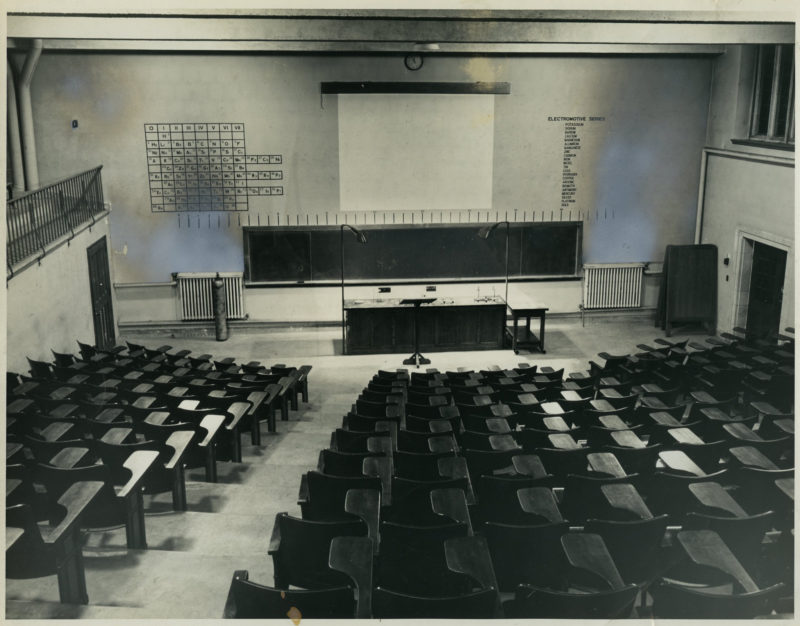Although universities have developed differently in each country, essentially all universities are similar: they are communities of students and scholars. Universities are communities where we realise social problems, raise issues and discuss how we could solve the problems we are facing using our collective intelligence. People cannot develop their thinking and ideas without interacting with others. Recently, there have been significant changes to research communities around the world. Some of these changes have resulted from the large increase in the number of international students. According to the Australian National University (ANU) statistics from 2017, the number of international students at ANU was over 9,000, 39% of the total student population. Looking at the undergraduate ratio, 56% of students are international students. This means that today, roughly one in two students you pass by on campus is an international student. International students are traveling away from home to study because they want to grow together within a research community. The university community itself changes with the arrival of new members, with international students bringing their culture and different perspectives with them.
However, both university administration and policy makers view international students as merely statistics, or as a financial resource. In an Australian Broadcasting Corporation (ABC) news article published in July 2018 titled ‘Australia’s top universities are split about how many international students they should enrol’, the contributors all agree that there is an obvious financial benefit to international student enrolments. Unfortunately, in this article and in wider debates about this topic, the voice of international students’ experiences in Australian universities is not shared or encouraged. International students are just seen as numbers. On 6 May 2019, ABC’s program, Four Corners included a documentary called ‘Cash Cows: Australian universities making billions out of international students’, which seemed at first to raise issues about the difficulties international students face. However, the program also stoked the public’s fear that unqualified foreigners could immigrate to Australia through universities. In all current reporting, international students are viewed statistically, or as individuals using the Australian education system for their private interests. No media reports deal with the issues international students experience or the lack of support they are provided with at Australian universities.
In reality, international students have a high potential to contribute to the research community in Australia, but they are struggling with how to fully participate, as they face many fundamental difficulties which weigh on their experience and their studies. International students need help, but there are few safeguards or forms of support available. International students are required to communicate in English for academic purposes, instead of their mother tongue, and they must also understand and navigate different systems and cultures while in Australia. However, there are no English language centres or international student centres to support them. International students often have to work during their studies due to high tuition fees, unaffordable housing, the high cost of living and other financial burdens. Some students suffer from a range of health issues, but Overseas Student Health Cover (OSHC) only extends to a limited range of medical conditions. How can international students be expected to know what kind of health issues might arise for them in the future, during their studies? Some international students have had to leave before finishing their studies or research because of visa extension problems, and highly motivated students must use their time to solve such problems instead of attending and contributing on their campuses; isn’t this is a huge loss?
I think Australian universities must support international students and should listen to international students about the difficulties they face while studying abroad. Supporting the transition of international students to studying abroad requires a proper international and multicultural student support system. For instance, Australian universities could provide English writing classes for international students. This kind of support would increase the quality of research on campus. Academic advisors and counsellors who understand the cultural differences and difficulties faced by international students would also be helpful. This support would be worthwhile, as international students bring their experiences and networks with them when they contribute to their new universities, not only while they are studying, but also after they return to their home country.
Providing a support system for international students in Australia will bring diverse perspectives into the Australian research community and Australian universities. Such support would make universities much more valuable over the long term, rather than focusing on the short-term financial benefits. Vice-Chancellor Brian Schmidt has decided not to grow ANU any larger, due to concerns about growth beyond a certain point and reaching a balance between research and teaching. He thinks ANU should focus on the quality of education provided. I think a support system for international students is also one of the solutions for increasing the quality of education and research on campus at ANU. A support system for international students could help more international students to achieve their academic aims, and it will prompt needed reform of the university research community. By helping international students and supporting them to achieve what they came here to achieve, we can help international students to be proud of themselves as alumna and alumni of ANU. Please do not dismiss the people who are active members of ANU’s research community, and who could make ANU more valuable.

